Errand Boy, The (1961)
“From the first day I got here, I’ve caused everybody nothing but trouble.”
|
Synopsis: |
|
Genres, Themes, Actors, and Directors:
Review: … fails at the seemingly simple task of bringing a few updated script pages to a room full of secretaries: … and, when mistaken for an extra, completely ruins the scene he’s in by bursting into song. From there, however, Morty’s travails become increasingly repetitive and/or pointless, with several (i.e., Morty’s botched trip to the car wash with his boss’s laryngitis-ridden wife) simply defying all intelligence. Much like in Lewis’s directorial debut, The Bellboy, the point here seems to be simply to watch Lewis’s nebbishy alter-ego meandering through a series of mishaps within a defined space — but while The Bellboy‘s blessedly mute Stanley is just one among many pawns in an enjoyably wacky universe, Morty (as usual for most of Lewis’s protagonists) quickly becomes simply a tiresome nuisance. Worst of all, the film’s nominal plot device — Morty being sent out to spy on his fellow employees — is simply never attended to in the screenplay, until a final mawkish sequence (loved by many, but not me) in which Lewis confesses his frustrations to a puppet. Worst of all is the incredibly self-serving denouement, which highlights Lewis’s arrogance as a performer more clearly than I’ve ever seen before. Yet there are at least a few sequences in The Errand Boy which make it worth your time to check out — most notably the justifiably lauded “board room” pantomime scene (available to view on YouTube). This scene alone shows evidence of Lewis’s intermittent genius. Redeeming Qualities and Moments:
Must See? Links: |
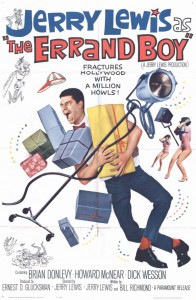
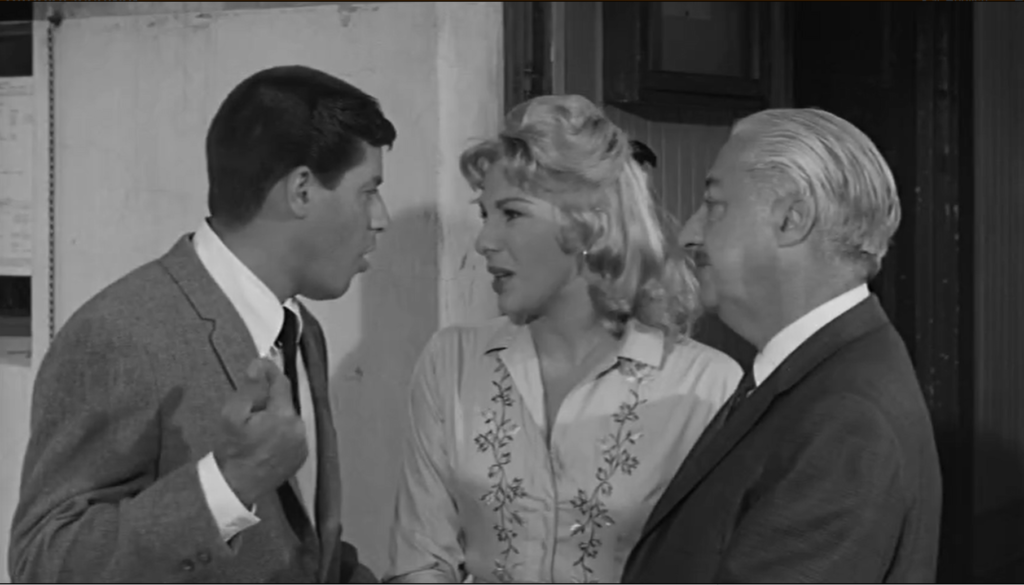
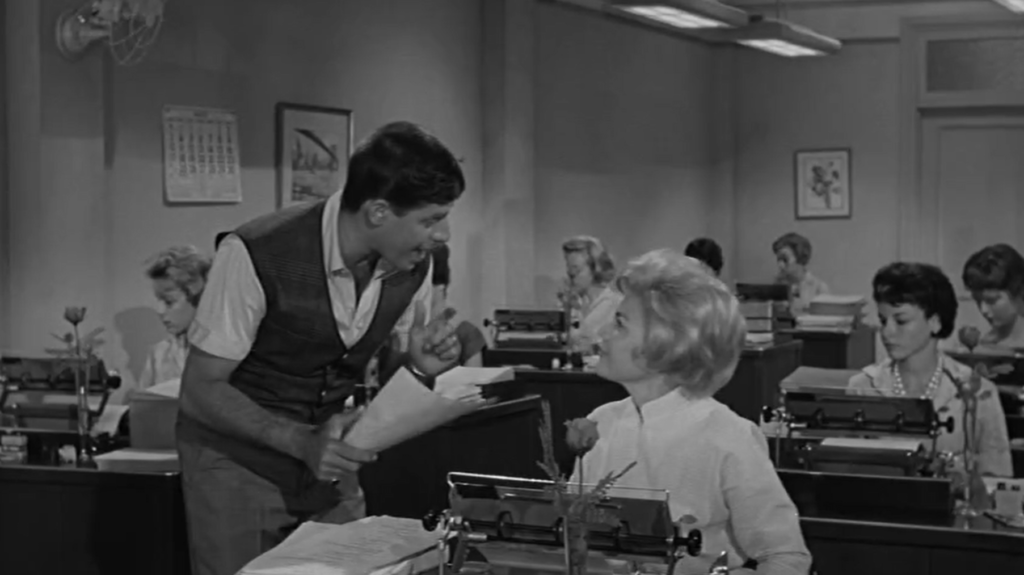
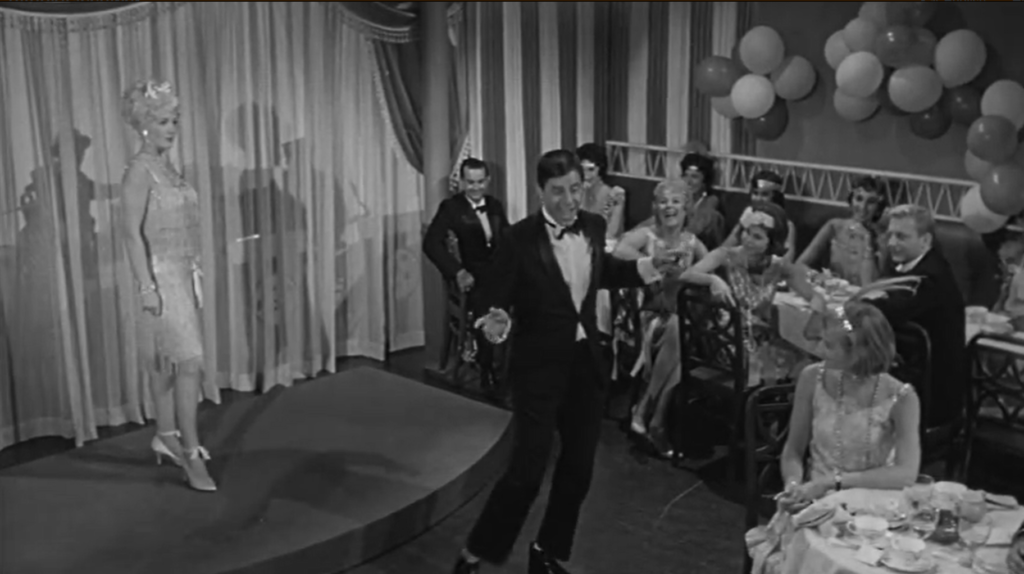
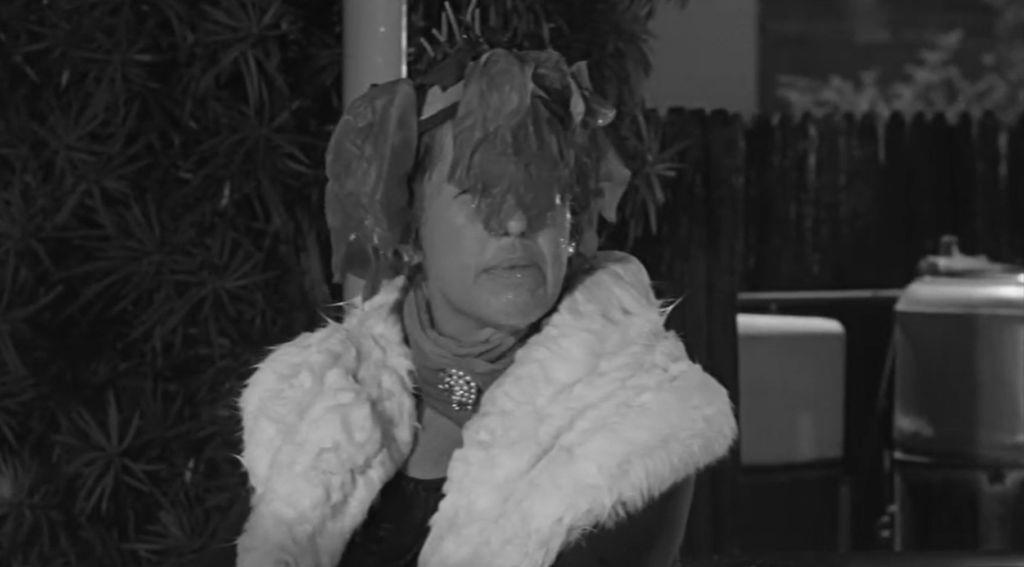
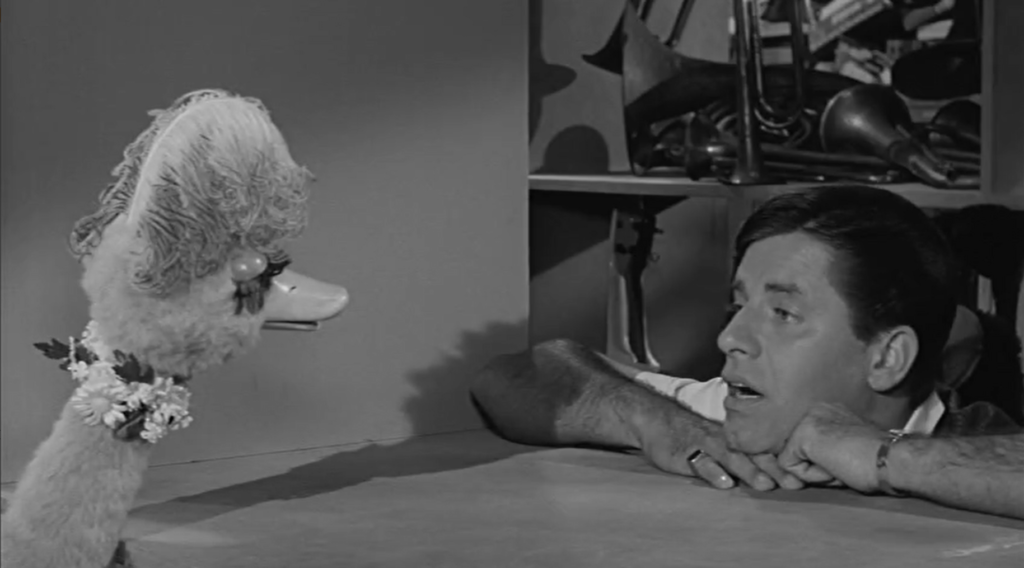
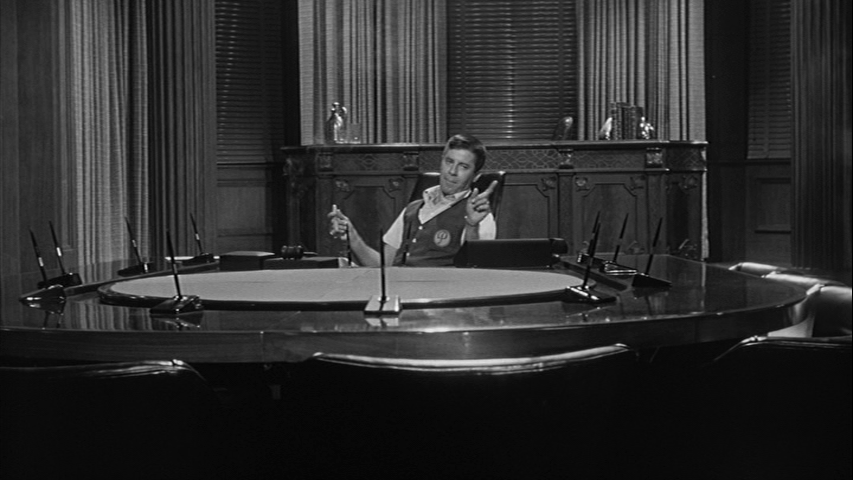
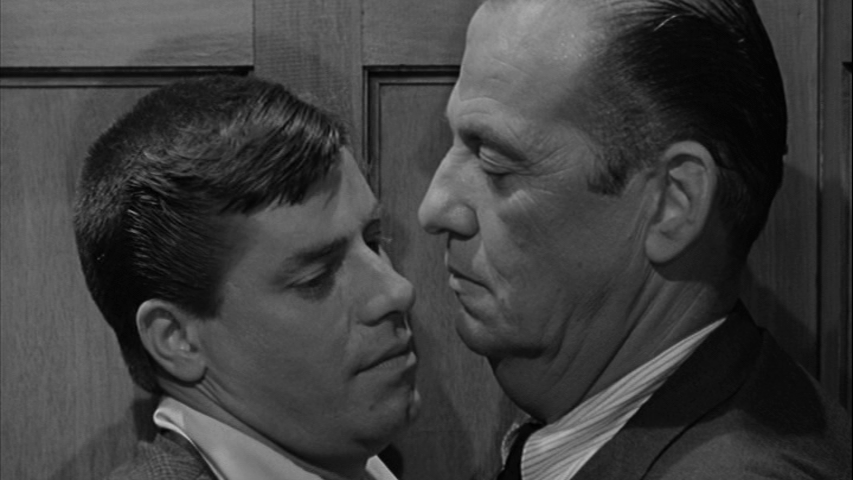
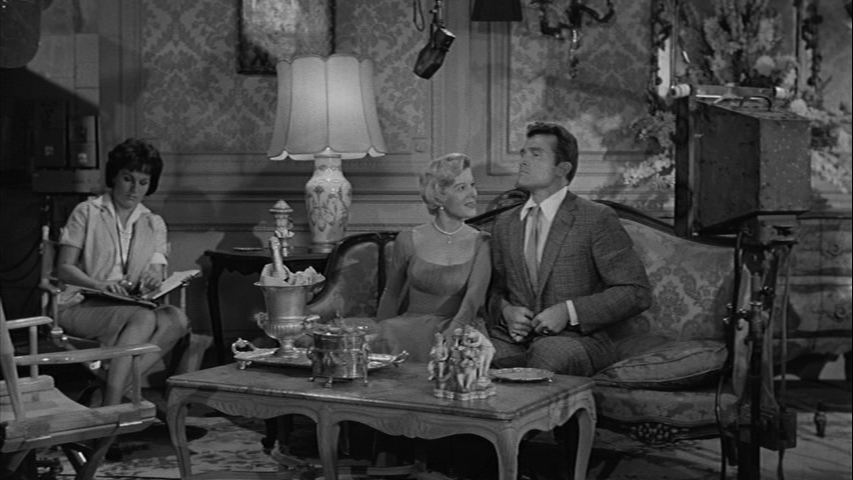
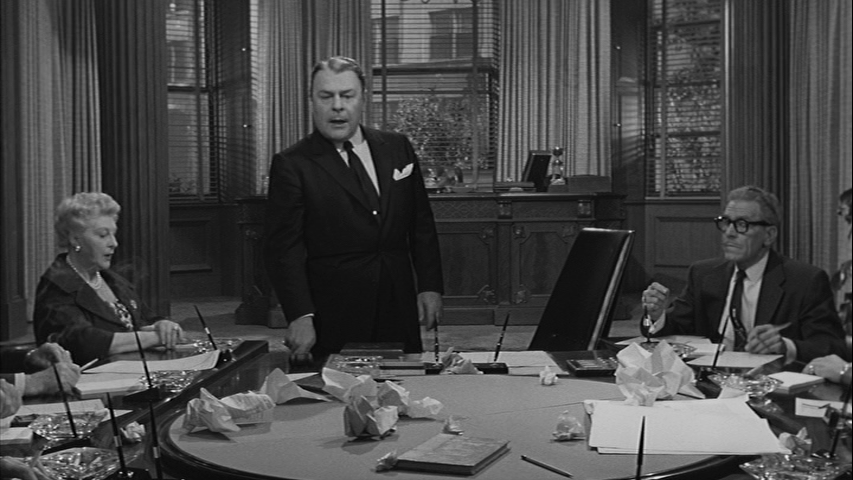
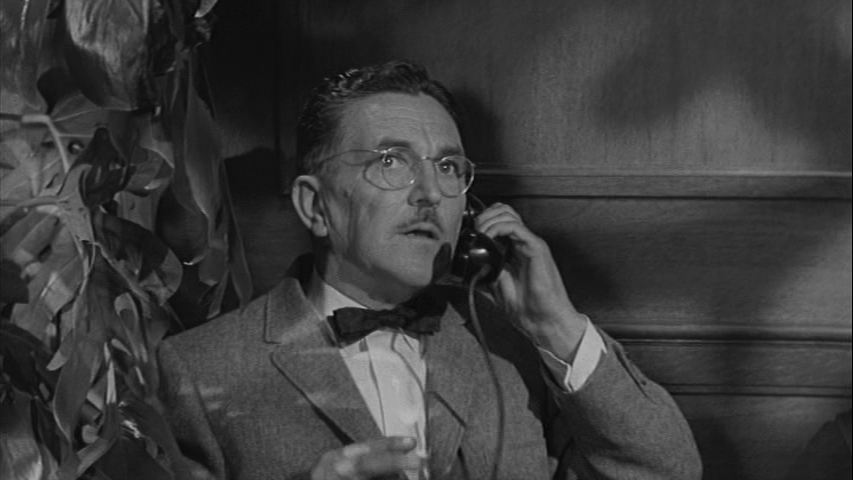
One thought on “Errand Boy, The (1961)”
Not must-see. As I may have mentioned before re: Lewis films, this is mainly entertainment for people who are verrrrry easily entertained. I saw most of the Lewis flicks when I was a kid. That was not hard to do because, when I was a kid, the availability of film entertainment (at least at home) was not what it is today. On tv, we had only three channels and the movie programs mainly consisted of the most popular of films. Lewis films were, of course, very popular – but I don’t recall enjoying them all that much, even as a kid. Even then, I was not (for the most part) all that big on very broad material like this.
That said, I don’t mind the two puppet sequences in this film. At least they are a reprieve from Lewis at his nerdiest. And, yes, the ‘board room’ sequence – in which he barks orders silently to the accompaniment of swing music – is kind of fun. But mostly this is directed at a very specific audience – which I’m not really in.
Here, a few of the supporting players are at least allowed comic delivery at a lower-decibel level. It’s particularly nice seeing Renee Taylor (as a receptionist) being nicely comedic while still being the ‘straight man’ to Lewis’ mania.